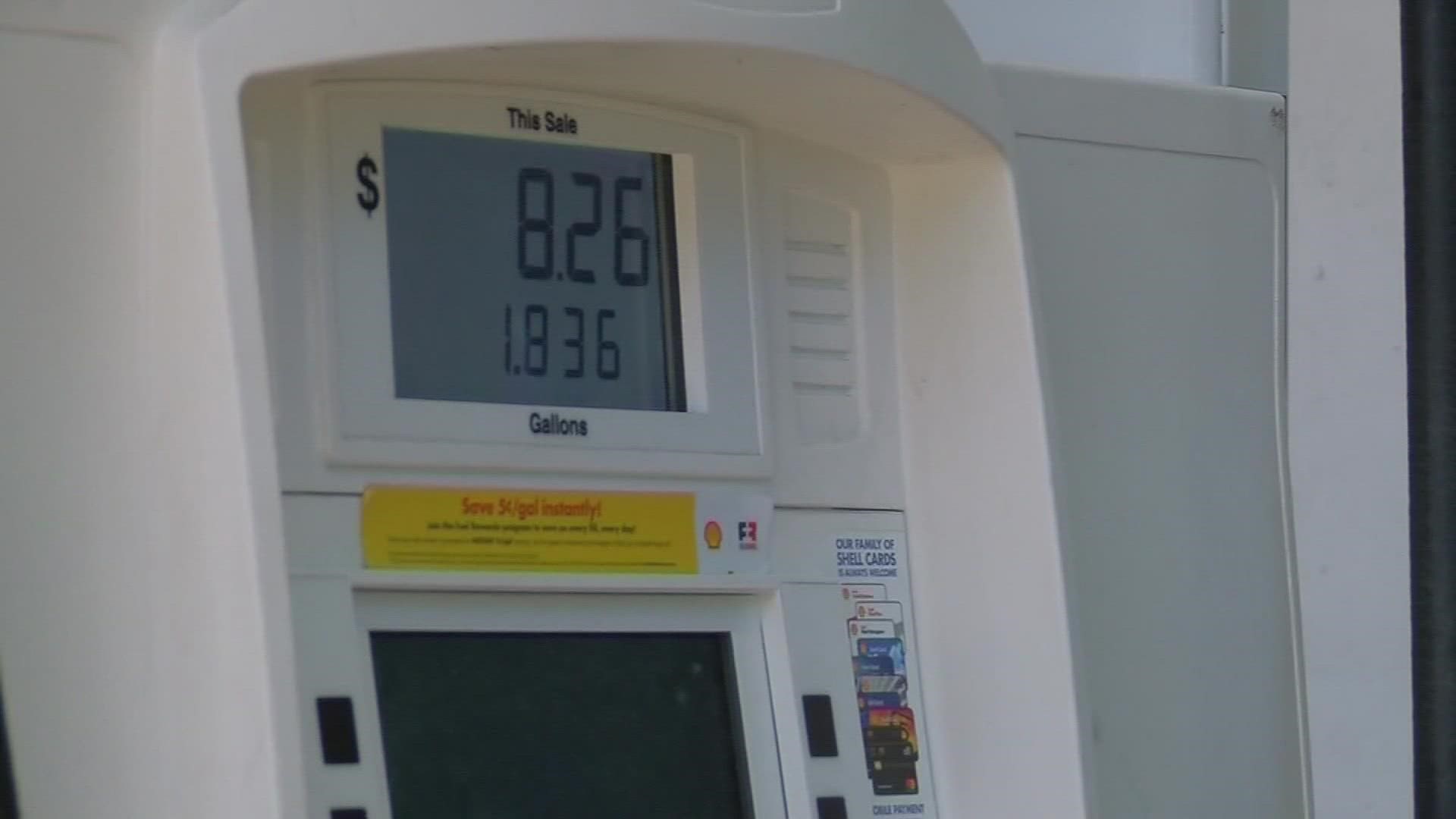KNOXVILLE, Tenn. — Here's an early Christmas present for drivers: Gas is getting cheaper, and experts said this trend is expected to continue through the holidays.
In Tennessee, the average price for a gallon of regular unleaded gas fell roughly 12 cents from last week to $2.94 on Monday, dropping below $3 a gallon on average for the first time in roughly a year, according to GasBuddy.
Tennessee is now one of 12 states with gas that's under $3 a gallon on average at the moment.
In Knoxville, the price of gas remains above average compared to the rest of the state. Gas is currently averaging around $3.10 a gallon, down by roughly 7 cents from last week. It's the cheapest gas has been in the city since last January.
"Likely what will happen and what we've seen happen in previous times this year is that, you know, it takes a little bit more time for Knoxville to see those declining gas prices to the point that we're seeing in other areas of the state," said Megan Cooper, a spokesperson for AAA. "So continue to expect those Knoxville gas prices to fall just a little bit more slowly than compared to other parts of the state. But the good news is those gas prices are still declining. And hopefully, like what we've seen previously in the year, we'll get to a point where Knoxville will move down the most expensive list."
According to a report from KARE 11 in Minneapolis, experts predict that these prices will keep coming down. The dropping prices are because demand for oil and gas is falling as countries brace for recession.
China's scaled-back consumption of oil has also been a major contributor to declining global oil prices, plus U.S. oil refineries have increased their output after many were shut down for maintenance.
"We're starting to get to the territory now where prices are not only lower than they were prior to Russia's invasion of Ukraine, but we're getting back to where many Americans start to feel gas prices normally are," said Patrick De Haan with GasBuddy.
Even though prices are falling, experts said most drivers are still being cautious by taking fewer trips, driving at slower speeds, and only partially filling their gas tanks.

